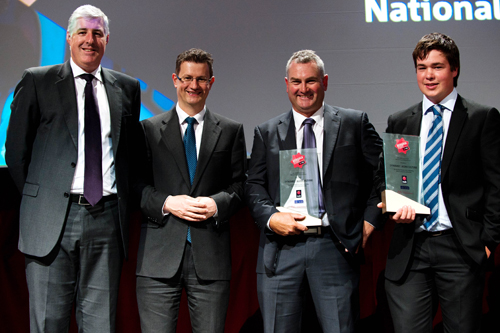
La recherche montre que les résultats des élèves (y compris l'engagement des élèves, fréquentation, la rétention et le rendement scolaire) peut être considérablement amélioré lorsque les élèves sont connectés et impliqués dans leur communauté. As part of our on-going Recherche mondiale pour l'éducation série, nous serons parfois présenterons pratiques de qualité à l'école et les programmes communautaires à partir de laquelle nous espérons écoles du monde entier se apprendre et se inspirer.
NAB écoles des Premières, soutenu par National Australia Bank en partenariat avec la Fondation pour les enfants Australiens (Fya) et le Conseil australien de la recherche en éducation (ACER), exploite un programme national de remise des prix en Australie qui a attribué 310 partenariats école-communauté avec $15 million in the past three years to support and sustain those partnerships. Any school in Australia can apply for a NAB School Award and to date over 26% applications des écoles australiennes ont soumis.
Les critères utilisés pour évaluer les demandes pour un prix comprennent: 1. Le partenariat a été créé pour répondre à un besoin ou une opportunité qui profitera aux étudiants. 2. Un plan a été élaboré avec chaque partenaire de contribuer au régime. 3. Un programme a été mis en œuvre avec succès. 4. Les étudiants ont bénéficié du programme. 5. Le partenariat est devenu partie intégrante de la culture et de planification des activités de chaque organisation partenaire.
Professeur Geoff Masters (Chef de la direction de l'ACER) se joint à moi cette semaine pour parler davantage au sujet de la NAB écoles des Premières initiative école-communauté, entre autres choses. Masters joined ACER in 1988 dans le rôle de directeur adjoint (Mesures) et a été nommé au poste de directeur adjoint (Mesures) dans 1991 avant de prendre le rôle de PDG en 1998. Avant de se joindre ACER, il était un membre de la Faculté d'éducation de l'Université de Melbourne. Il détient un doctorat en mesure éducative de l'Université de Chicago et a publié plusieurs livres et de nombreux articles de revues dans le domaine de l'évaluation pédagogique. Il a été récipiendaire de la Australian College of éducateurs’ 2009 Médaille du Collège en reconnaissance de ses contributions à l'éducation.
Pourquoi un tel programme NAB écoles des Premières si important?
The program was introduced to encourage and recognize the importance of partnerships between schools and their local communities. There is a focus in the NAB écoles des Premières programme sur les écoles formant des partenariats avec les communautés locales, including community organizations and local businesses. The idea underpinning NAB écoles des Premières qui est “il faut un village pour élever un enfant.” It’s a question of how the school can engage the local community, how schools can draw on resources and expertise from beyond the school. The program was introduced to encourage schools to think about how they can do that. It was also introduced to recognize schools that are doing this well and to hold them up as models for other schools to follow.
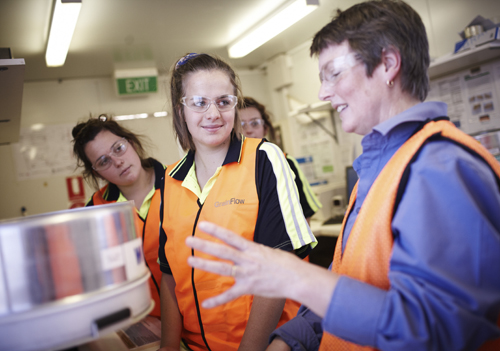
How much of what schools are able to achieve depends on the support of the surrounding community?
Certainly schools can achieve much more if they draw on the resources and support of their local communities. Par exemple, we have found that schools that work with local businesses are often able to provide support to their students in the development of work-related skills and experience. The local community can also be helpful in facilitating transitions of students from school into post school employment. Our experience through the NAB écoles des Premières program is that communities and businesses often complement what schools are doing in a variety of different ways.
Research done in Canada showed that 70% of the variation in student achievement is accounted for by factors outside of the control of schools.
Certainly students’ backgrounds and out of school experiences impact their performances in schools. Whether a student comes from a poorer background or a higher socioeconomic area is a factor in student achievement. Much of the variation in achievement in schools is explained by factors that are outside the control of schools.
What will NAB écoles des Premières winners look like in 5 année à partir de maintenant?
I think they will be quite sophisticated in terms of the relationships they have built. The best kinds of partnerships that we have seen are ones in which there is a benefit not only to the school but also to the partner – the community or business organization involved in the partnership. There is a sharp focus on using the partnership to improve outcomes for students. So there is a strong sense of purpose, and that purpose is focused on the improvement of outcomes for young people. But we have seen partnerships of very different kinds that we have considered to be quite outstanding.
What themes of change do you predict schools will be putting in place to keep up with the changing times, e.g. the dramatic evolution in technology?
Given how rapidly things are developing, it’s a little difficult to see what the situation might be ten years from now, but I think it is quite clear that students will have increasing access to resources and information beyond the classroom through the internet and through social media. Students will be accessing a much broader range of information through technology and that, bien sûr, will be possible from anywhere in the world. There will need to be a focus in schools on teaching students to separate quality information from other less reliable information.
Students will continue to do much of their work within classrooms, but they will also access a much wider variety of information beyond the classroom. Increasingly rich learning resources are becoming available to students. A l'avenir, a significant proportion of student learning may be based on real issues and real problems. Students are likely to work on those issues not only within schools, but also with a range of stakeholders, including those within the local community.
Final thoughts on model schools or themes of change to improve schools?
In Australia there is a growing interest in what can be done to support schools and to improve what schools are doing. This includes an effort to identify schools that are already doing excellent things. There is a lot of excellent practice in schools that is not always being identified and scaled up. Part of what we are doing through NAB écoles des Premières is to identify where good practice is occurring and to recognize, reward and share that practice with other schools across the country. Like the rest of the world, we recognize that government programs don’t always deliver the reforms that they were designed to deliver, and we are increasingly recognizing that improvements in student achievement depend on improvements in teaching and learning practices in schools and classrooms. A number of new initiatives are being introduced to support schools in the improvement of these day to day practices. L'accent est mis en Australie, illustré par NAB écoles des Premières, sur la définition et la description excellente pratique et ensuite partager et de célébrer une telle pratique.
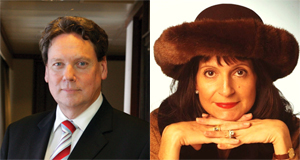

Jen La recherche mondiale de l'éducation, joindre à moi et leaders d'opinion de renommée mondiale dont Sir Michael Barber (Royaume-Uni), Dr. Michael Bloquer (États-Unis), Dr. Leon Botstein (États-Unis), Dr. Linda Darling-Hammond (États-Unis), Dr. Madhav Chavan (Inde), Le professeur Michael Fullan (Canada), Professeur Howard Gardner (États-Unis), Professeur Yvonne Hellman (Pays-Bas), Professeur Kristin Helstad (Norvège), Jean Hendrickson (États-Unis), Professeur Rose Hipkins (Nouvelle-Zélande), Professeur Cornelia Hoogland (Canada), Mme. Chantal Kaufmann (Belgique), Professor Dominique Lafontaine (Belgique), Professeur Hugh Lauder (Royaume-Uni), Professeur Ben Levin (Canada), Professeur Barry McGaw (Australie), Professeur R. Natarajan (Inde), Dr. Denise Pape (États-Unis), Sridhar Rajagopalan (Inde), Dr. Diane Ravitch (États-Unis), Sir Ken Robinson (Royaume-Uni), Professeur Pasi Sahlberg (Finlande), Andreas Schleicher (PISA, OCDE), Dr. Anthony Seldon, Dr. David Shaffer (États-Unis), Dr. Kirsten immersive, (Norvège), Chancelier Stephen Spahn (États-Unis), Yves Thézé (Lycee Francais US), Professeur Charles Ungerleider (Canada), Professeur Tony Wagner (États-Unis), Professeur Dylan Wiliam (Royaume-Uni), Dr. Mark Wormald (Royaume-Uni), Professeur Theo Wubbels (Pays-Bas), Professeur Michael Young (Royaume-Uni), et le professeur Zhang Minxuan (Chine) alors qu'ils explorent les grandes questions d'éducation de l'image que toutes les nations doivent faire face aujourd'hui. La recherche globale pour l'éducation communautaire page
C. M. Rubin est l'auteur de la série en ligne largement lu, La recherche globale pour l'éducation, et est également l'auteur de trois livres à succès, Y compris The Real Alice au pays des merveilles.


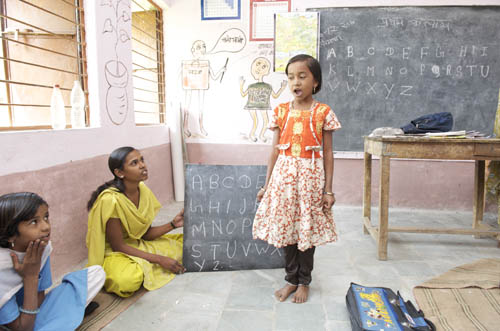
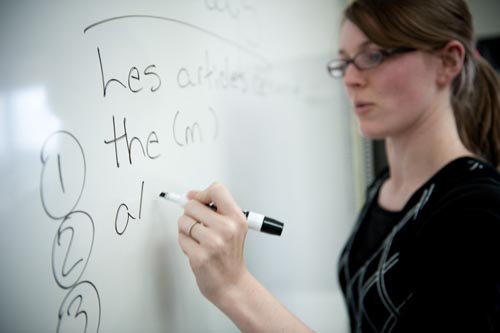
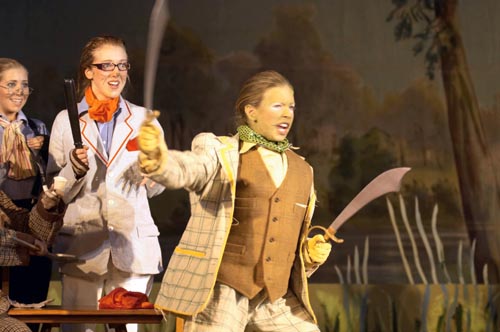
Commentaires récents